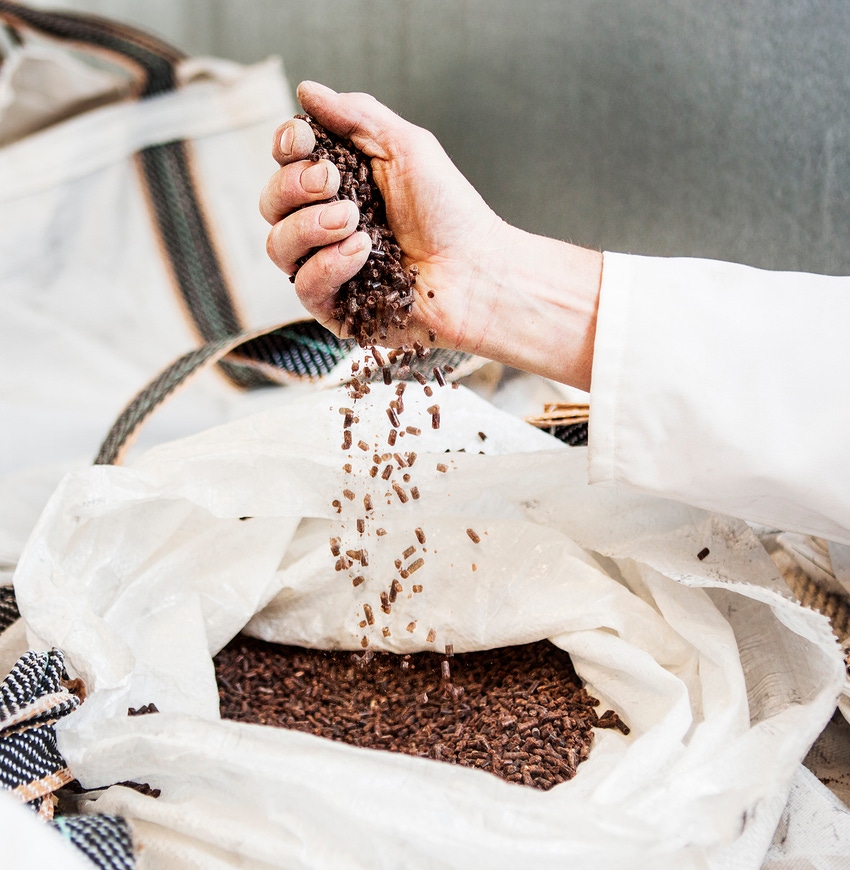Investment will enable Calysta to expand production of its protein product and support global rollout.

BP Ventures has made an investment of $30 million in Calyst Inc., an alternative protein producer, that will use BP’s natural gas to produce protein for fish, livestock and pet feeds. The investment supports BP’s strategy of creating new markets in which gas can play a material role in delivering a more sustainable future and establishing a strategic relationship between BP and California-based start-up Calysta around gas and power supply.
Calysta said the investment will help expand production of its sustainable, single-cell protein, which is produced through a proprietary, commercially validated gas fermentation process using naturally occurring, non-genetically modified microbes with the unique ability to use methane as their energy source. Through extensive customer trials around the world, FeedKind protein has proved to be an effective, safe and nutritious feed ingredient.
The innovative process has the potential to help meet the growing demand for feed in the aquaculture and wider agricultural markets without some of the environmental impacts of current sourcing methods, BP noted.
The global aquaculture market is expected to grow as much as 25% by 2025. FeedKind protein can be a sustainable substitute for other currently used protein sources – such as fish meal and soy protein concentrate.
“By pairing Calysta’s exciting technology and entrepreneurial drive with BP’s global scale and gas market expertise, this partnership offers the opportunity to improve food security and sustainability for the world’s growing population,†Dominic Emery, BP’s group head of strategy, said.
Dr. Alan Shaw, chief executive officer and president of Calysta, added, “Welcoming BP as a partner is a tremendous step forward for FeedKind protein and the best indicator yet that Calysta’s solution to food insecurity in a resource-constrained world can and will achieve global scale.â€
Shaw continued, “We look forward to working closely with BP as we prepare to deliver this product to the world. Calysta will benefit from BP’s operational excellence and focus on safety when deploying multiple production plants.â€
During the FeedKind process, a naturally occurring bacteria is grown in a proprietary fermenter using methane as its carbon and energy source. This creates a single-cell protein that is harvested and dried prior to being pelletized. The natural fermentation process is similar to the production of yeast for bread. Calysta’s micro-organisms are a naturally occurring component of healthy soils worldwide. FeedKind has no impact on the flavor or texture profile of seafood or animals fed FeedKind.
BP’s investment will enable Calysta to expand production of its FeedKind protein and support its ambition for a global rollout. FeedKind protein is already being produced from the company’s Market Introduction Facility in Teesside, England, to support market development activities with leading animal nutrition companies around the world.
Under the investment agreement, BP and Calysta also will establish a strategic partnership on the gas and power supply.
Meghan Sharp, managing director of BP Ventures, said, “We are really excited to be working with the team at Calysta, bringing them into the BP Ventures family as we seek new commercial opportunities for our gas business. Their technology complements our core business while providing opportunities for sustainable products for tomorrow.â€
About the Author(s)
You May Also Like





